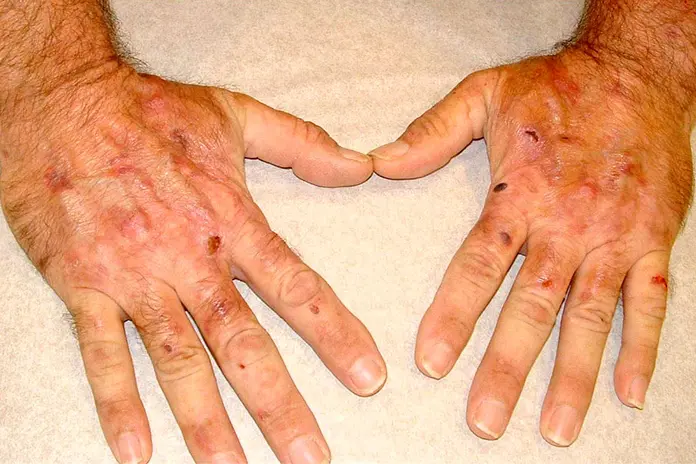Can Acute Intermittent Porphyria be Cured?
No
No cure; management focuses on preventing and managing symptoms; avoiding triggers is crucial

What is Acute Intermittent Porphyria?
Acute intermittent porphyria is a rare genetic disorder affecting the production of heme. Treatment may involve managing symptoms and avoiding triggers. Regular monitoring is crucial for assessing symptom control and preventing acute attacks.

Clinical Aspects

Characteristics
Genetic disorder affecting heme production, leading to the buildup of porphyrins

Symptoms
Abdominal pain, neuropsychiatric symptoms, skin sensitivity to light

Diagnosis
Urine and blood tests, genetic testing

Prognosis
Variable; can be life-threatening in severe cases

Complications
Neurological symptoms, abdominal pain
Etiology and Treatment

Causes
Genetic mutations affecting enzymes in the heme synthesis pathway

Treatments
Avoiding triggers, intravenous heme therapy during attacks, symptom management

Prevention
Avoiding triggers, intravenous heme therapy during attacks, symptom management
Public Health and Patient Perspectives

Epidemiology
Rare genetic disorder; often presents in adolescence or early adulthood

Patient Perspectives
Management involves avoiding triggers and symptomatic treatment
For personalized advice and care, always seek the assistance of healthcare professionals. This information is meant for general understanding and not as a replacement for professional medical advice.
Share: